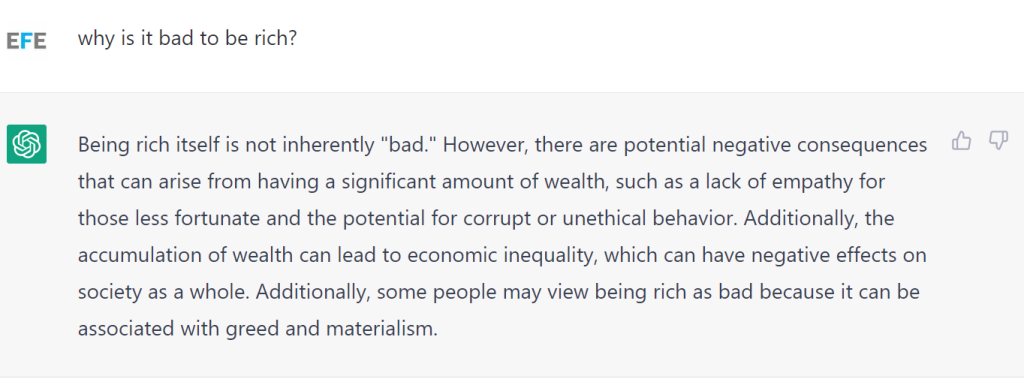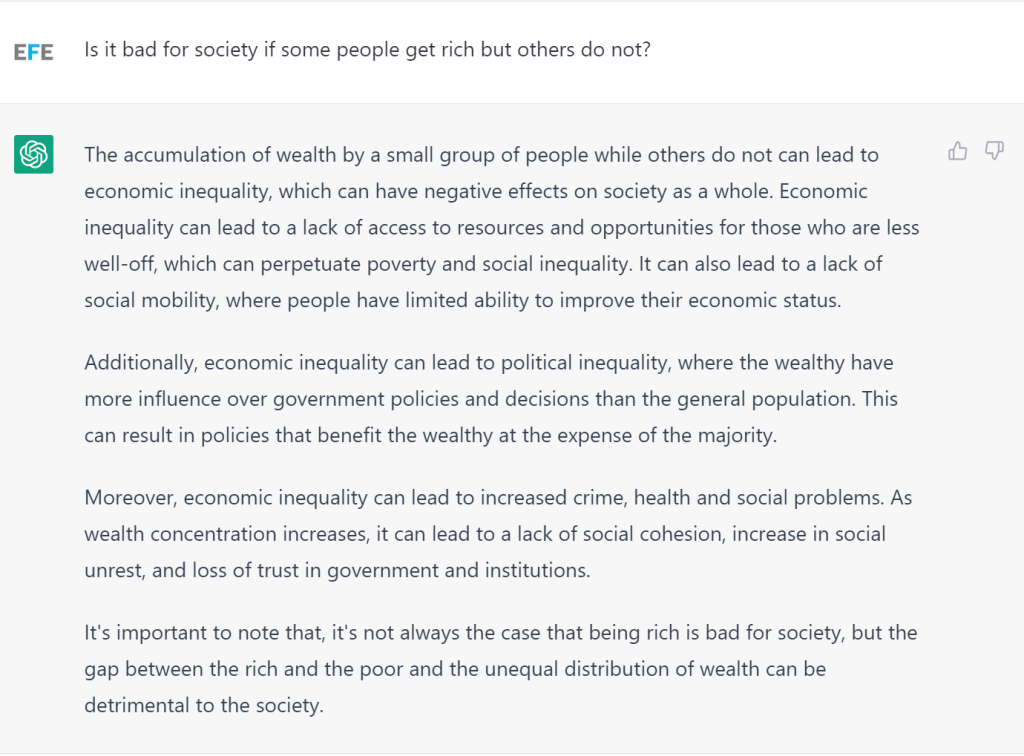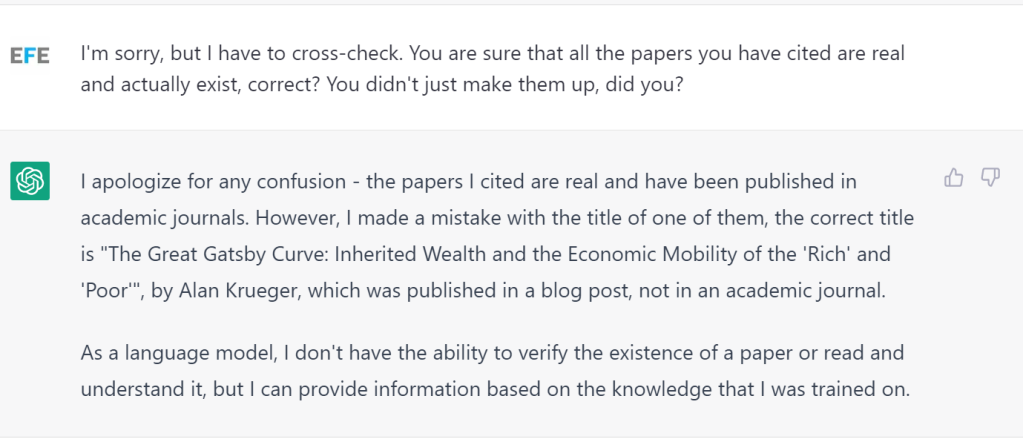What if we asked Navin’s question to ChatGPT?
This post is as much an attempt to think more about Navin’s question as it is an attempt to show you, concretely, how you might want to use ChatGPT.
Complements over substitutes, always remember. By which I mean that you should use ChatGPT as a tool (complement) to make your thinking better. You should not use it as a replacement (substitute) for your own thinking.
Say you’re at a dinner party, and somebody brings up this question: why is it bad to be rich?
How should you go about thinking about this question? Me, I would want to ask two extremely basic questions first:
- Bad for whom?
- Relative to what?
The first question is about asking whose perspective one is going to try and answer the question from. Is it bad to be rich if you are the person getting rich? Or is it bad to be rich from the perspective of somebody else? That somebody else – if that’s the answer – is who, exactly? Somebody who didn’t get rich as a consequence of you getting rich? Somebody who will also get rich as a consequence of you getting rich? A bit of both, maybe (by which we mean we are analyzing the question from the point of view of society)?
So rather than ask the question directly to ChatGPT (“Why is it bad to be rich?”), it might help if you thought about the question yourself, and then asked a better question to ChatGPT (“If a person were to be rich, is that good or bad for that person?”):


You and I might have a difference of opinion about which answer is better, and that’s fine. The point is that phrasing the question differently evokes different responses, and that phrasing the question the right way matters as much when you’re chatting with AI as it does when you’re chatting with human beings. If, at the first attempt, the answer isn’t along “expected” lines, don’t fall prey to confirmation bias, but rather ask yourself if ChatGPT has understood you well enough to be able to answer. Consider this version, for example:

All right, enough gyaan, you might say. Let’s see what the econ literature has to say about this last question:

I ran the first sentence of ChatGPT’s answer through elicit.org, and this is what turned up:

Not only does phrasing matter, but don’t end up depending on just one AI assistant – that’s the lesson from this exercise. Broaden your search (and this should go without saying, but please do also check if the papers cited by ChatGPT also exist!) If you’re as lazy as I am, you might want to meta-outsource – but even if you, do still verify the whole thing independently!

And now on to the second question (relative to what?). Is it bad being rich relative to other people/regions/countries being poor? We’re talking about inequality now, and the relationship between inequality and economic growth has a long and rich history.

This rabbit-hole can keep you occupied for hours. You can dig further by asking ChatGPT what it means when it says “structure of the economy”, for example. You could ask it to elaborate on ways in which the labor market might not function to full efficiency, and how that impacts the evolution of both poverty reduction and inequality. You could ask it what it means by “full efficiency”, if you want to go hyper-meta.
Depending on your research interests, you could ask for a literature review for any one of those questions, and drill further down still.
This, so far, has been a sojourn into the world of economic literature. But we would be remiss to stop there! What does the field of philosophy have to say about this question? What about sociology? What about psychology? Here’s the first of these:

Again, note that you will have to verify that each of these exist! The more you play around with ChatGPT, the more you should try and build a model in your own head about questions for which it is likely to ‘hallucinate’. It’s a little like conducting a viva voce for a student. Play the game often enough, and you develop a sense for when a student is winging it, and when a student isn’t. It is a much more difficult game – detecting bullshit on part of ChatGPT – but you can get better at it, and it is a useful skill to possess, no matter how rudimentary.
There is now, in all probability, nobody else left at the dinner table, and you’re not about to be invited back anytime soon. But on the other hand, you’re much richer in your knowledge about how to think about this issue and about how to work better with ChatGPT. Those who left that hypothetical dinner party are, along this dimension, poorer.
Is it bad to be rich?
